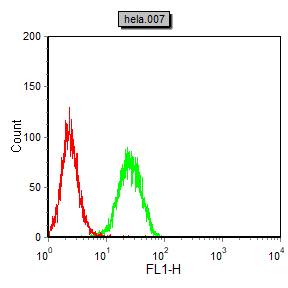
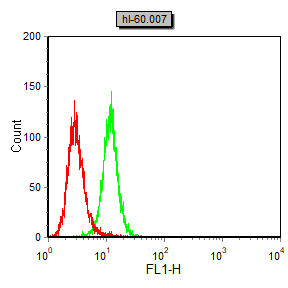
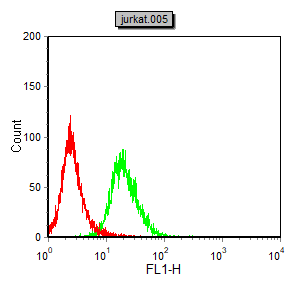
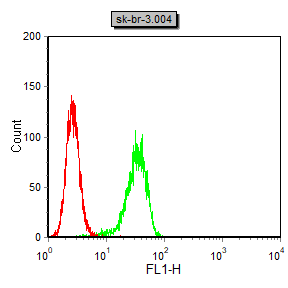
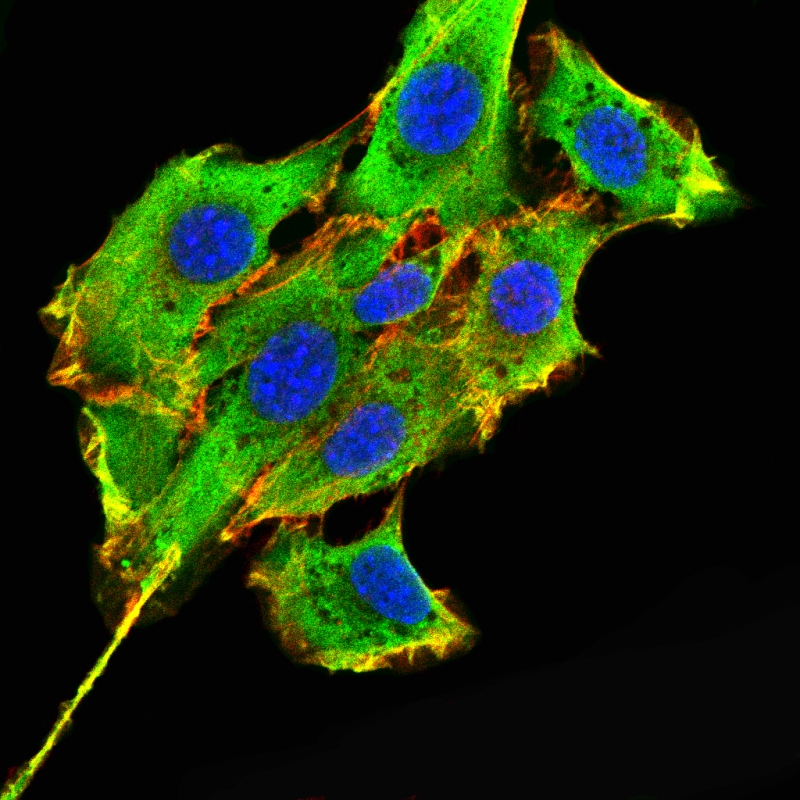
| WB | 咨询技术 | Human,Mouse,Rat |
| IF | 咨询技术 | Human,Mouse,Rat |
| IHC | 咨询技术 | Human,Mouse,Rat |
| ICC | 1/25-1/50 | Human,Mouse,Rat |
| FCM | 1/200 - 1/400 | Human,Mouse,Rat |
| Elisa | 咨询技术 | Human,Mouse,Rat |
| Aliases | Tp44 |
| Entrez GeneID | 940 |
| clone | 3F4A5 |
| WB Predicted band size | 25kDa |
| Host/Isotype | Mouse IgG1 |
| Antibody Type | Primary antibody |
| Storage | Store at 4°C short term. Aliquot and store at -20°C long term. Avoid freeze/thaw cycles. |
| Species Reactivity | Human,Mouse |
| Formulation | Purified antibody in PBS with 0.05% sodium azide |
+ +
以下是关于CD28抗体的3篇参考文献及其摘要概括:
---
1. **文献名称**:*Superagonistic CD28 Antibodies Expand Regulatory T Cells for the Treatment of Autoimmunity*
**作者**:Hünig, T. et al.
**摘要**:该研究报道了一种超级激动型CD28抗体(如JJ316)能够特异性激活调节性T细胞(Treg),而不需要T细胞受体(TCR)的共刺激。这种抗体在实验性自身免疫性疾病模型中显著扩增Treg并抑制炎症反应,为治疗自身免疫疾病提供了潜在策略。
2. **文献名称**:*CD28 Costimulation: From Mechanism to Therapeutic Applications*
**作者**:Linsley, P.S., Ledbetter, J.A.
**摘要**:综述了CD28作为T细胞共刺激受体的核心机制,包括其与配体B7的相互作用及下游信号通路。文章还讨论了CD28抗体在增强抗肿瘤免疫或抑制自身免疫反应中的双重作用,并比较了其与CTLA-4抗体的功能差异。
3. **文献名称**:*CD28 Co-Stimulatory Domain Choice Critically Impacts the Persistence of CAR-T Cells*
**作者**:Perez-Garcia, A. et al.
**摘要**:研究比较了基于CD28与4-1BB共刺激结构域的CAR-T细胞的体内持久性。结果显示,含CD28结构域的CAR-T细胞在短期抗肿瘤效应中更强,但长期存活能力低于4-1BB结构域,提示CD28抗体或共刺激信号需与其他分子联用以优化疗效。
---
**注**:若需更近期文献(如2023年),建议通过PubMed或Google Scholar检索关键词“CD28 antibody clinical trial”或“CD28 immunotherapy”获取最新进展。
CD28 is a critical co-stimulatory receptor expressed on T cells, playing a central role in adaptive immunity. Upon binding to its ligands CD80/CD86 on antigen-presenting cells, CD28 delivers a secondary activation signal alongside T-cell receptor (TCR) engagement, amplifying T-cell proliferation, survival, and cytokine production. This co-stimulation is essential for effective immune responses, making CD28 a key therapeutic target.
CD28 antibodies are broadly categorized into **agonistic** or **antagonistic** types. **Agonistic antibodies** (e.g., super-agonists like TGN1412) aim to hyperactivate T cells, potentially enhancing anti-tumor immunity. However, early clinical trials revealed severe cytokine storm risks due to systemic T-cell overactivation, underscoring safety challenges. **Antagonistic antibodies** (e.g., abatacept derivatives) block CD28-CD80/86 interactions to suppress T-cell activation, offering promise in autoimmune diseases or transplantation by inducing immune tolerance.
Therapeutic development has evolved to improve specificity. Newer agents, such as **CD28 domain antibodies** (dAbs) or bispecific constructs, focus on localized activity or conditional activation to minimize off-target effects. Preclinical studies also explore CD28-targeting CAR-T cells to augment persistence and efficacy. Despite setbacks, CD28 remains a cornerstone in immunomodulation, balancing its dual role as a catalyst for immunity and a gatekeeper for tolerance. Current research prioritizes fine-tuning CD28 signaling to harness its therapeutic potential safely.
×